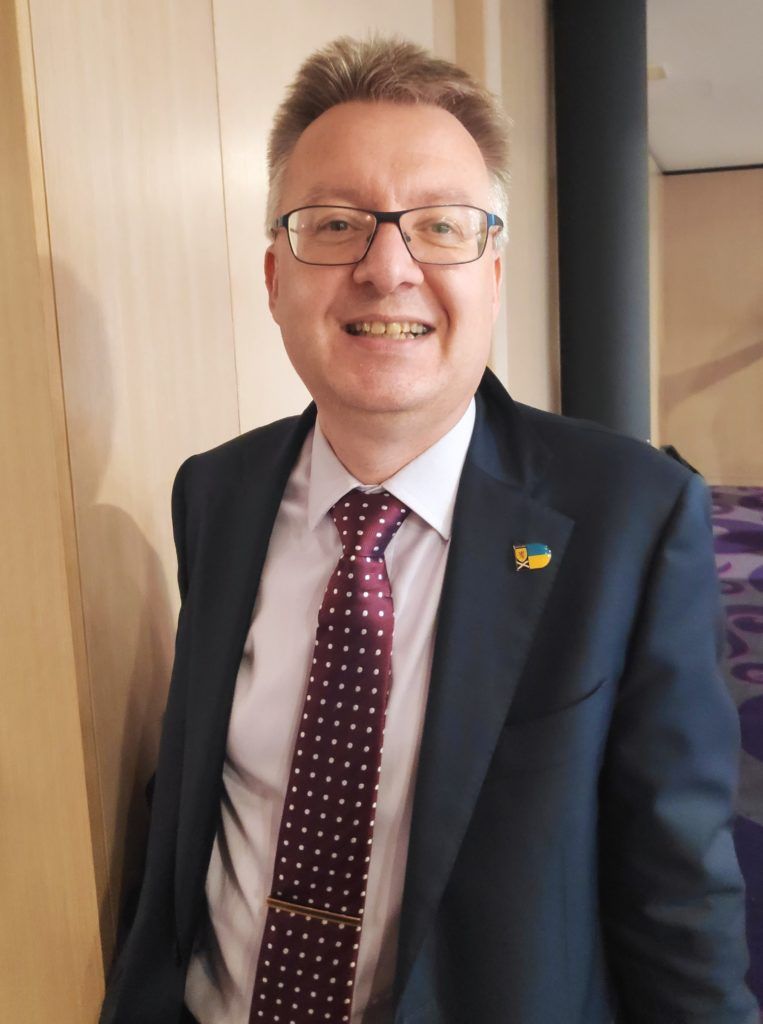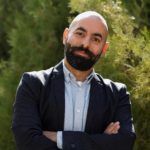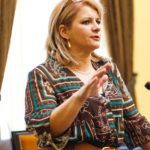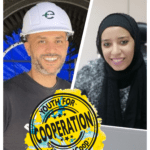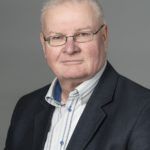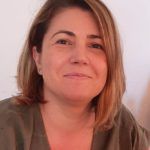Voices from the field
Moray Gilland
A cooperation pioneer back to the helm
Moray Gilland has become the new Head of D1 Unit, within DG REGIO. TESIM Communication Coordinator Daniela Cavini met him on the side of his first meeting with representatives of the ENI CBC and Interreg NEXT programmes involving the Russian Federation, Belarus, Ukraine and the Republic of Moldova. Here is what he told her.
Mr. Gilland, you are coming back to a “house” you know very well. Can you tell us about your first experience with Interreg?
I initially worked as a desk officer between 2000 and 2009, in a time when we still used to be one single Unit. I started with the Nordic programmes and then dealt with quite several others in central Europe and the Western Balkans. A very challenging period, as we went through the big enlargement of 2004, the expansion of Interreg to all the new Member States. We had to introduce new programmes halfway through an established programming cycle: not an easy thing to do. But it seems so far away now, a lot of water has gone under the bridge.
What was it like, at that time? And how different you find it from now?
Even when I left in 2009, we were still trying to move forward the cooperation. Our approach has always been that cooperation was absolutely about an equal partnership, including on the external European borders. There wasn’t a differentiation between who was a Member State and who wasn’t: it was a cooperation scheme, and even in 2009 we were still trying to develop it. The work I did in the Western Balkans was particularly about this: we felt that cooperation programmes could really be a good learning experience for the candidate countries. Because if you were participating in cohesion programmes with a Member State acting as Managing Authority, you could see how this was meant to function.
Now we are over a decade down the road, the concept of cooperation has been well integrated: but priorities have somehow evolved…
Yes, the overall situation has changed, for example there is much more pressure for climate action, for green spending, more than we have ever seen before. And this is not going to go away, it will be one of our priorities for the next decade.
You come back to a community deeply affected by 24 February 2022: what is your perception of the reaction of ENI CBC governing bodies?
Even in dark times as we have now, you still have programmes coming together and sharing their experience and looking at how to keep the cooperation going. They also strive to minimize the negative impacts on partners and projects. So, the important fact is that we can still sit around the table and have these discussions: making the cooperation function as effectively as possible, is the best response to this situation.
Russian partners have disappeared from the picture in a blink of an eye. Do you see any long-term hope that this could resume, sometimes?
Even if the Russian army was to lay down arms and walk off Ukraine tomorrow, that does not change much. It doesn’t change what the Russian Federation has done as a State. It doesn’t change what Ukraine has suffered in the last nine months. The situation has reached such an extent, that you just can’t pick up the cooperation structure we had before all this happened. And that’s one of the greatest regrets of all, because we spent so long building cooperation with Murmansk, and Karelia, and Leningrad oblast, and Saint Petersburg. But we do not operate in a political vacuum, what has happened will have consequences for a long time to come. And honestly, it is just too difficult to judge now what will happen in the mid and long term.
Today here in Brussels we have witnessed an extraordinary level of discussion, of determination to find solutions to problems, and the meeting ended with a sound handclapping from participants, something quite unusual for this kind of settings. I guess we could call it a “participatory approach”. Will this be a “model” for future meetings as well?
Well, I hope so, this is how I always try to operate. In my view, when programmes need assistance, the European Commission is here to help. In the Interreg context there is a need for a participatory process because we as Commission might not have all the answers, but there may be people around the table who face the same problems, and that’s part of the whole approach of getting the programmes to share experiences and learn from each other, because they may well have the answers, the solutions that we don’t have. I think this type of process is by far the best way to function.
We are focusing so much on the Eastern Partnership now, it’s almost inevitable. But we have two programmes across the southern shores, in an area of the world where the situation is also politically very tense. They have managed to endure many crises, and to change. It’s a region with great potential, and a strong will to keep cooperating. What is your view on the South?
I have always felt that the Mediterranean cooperation is an evolving process, concerning many countries, to be taken forward step by step. We have now a new framework with the NEXT programmes: we have a real chance to develop what was done before, but also to go beyond that. The closer you bind countries and regions into that process, the stronger the cooperation is, and that’s what we need to keep building there. When you look at the overlapping nature of the different areas of work, the different scales, and scopes, be it environment, transport or entrepreneurship, you know there is more and more happening in the South: and that’s something Interreg NEXT programmes can step in and support.
